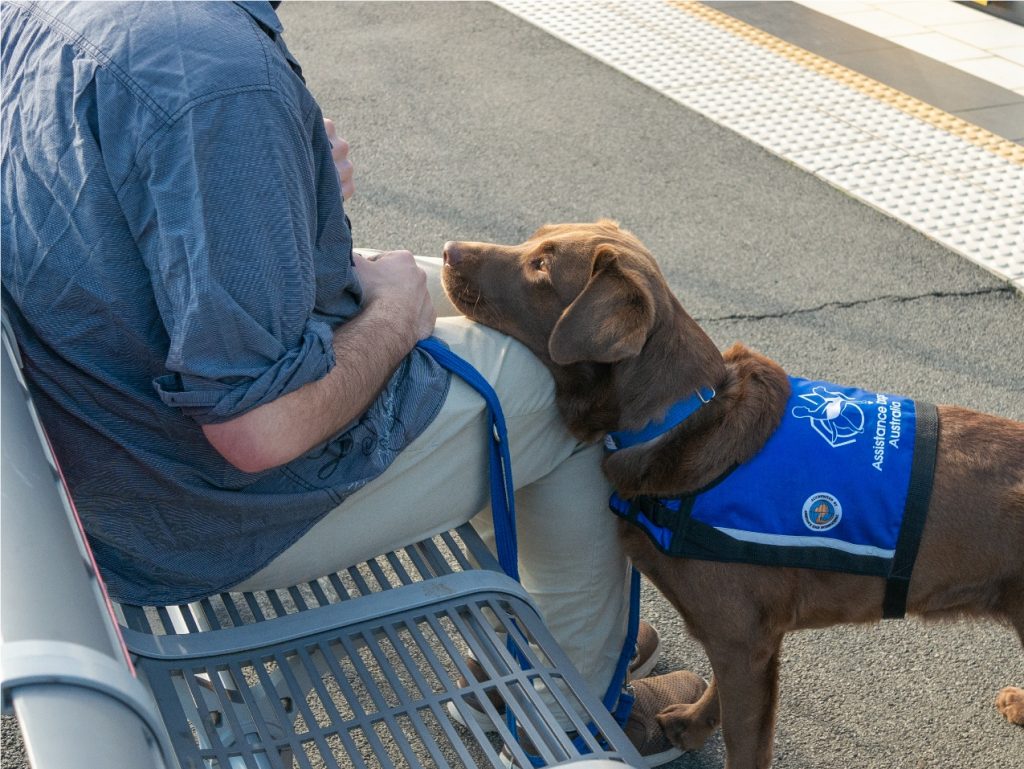Blue Ribbon Foundation Assistance Dogs Program
About Assistance Dogs
Why Assistance Dogs?
Humans and dogs have always benefitted from our co-existence. We’ve looked after each other physically and emotionally and become best friends in the process. Our needs are considerably different to our early days with dogs, but one thing has never changed, our support for each other makes this world a better place to live.
Our bond with dogs is most special when one of us is in need. Whether it’s a pet providing companionship, or a support dog for people with disabilities, our canine friends always come through for us. Through unique training, police assistance dogs can provide independence, self-esteem, improved health and relationships to individuals and families where extreme PTSD is a condition.
How are Assistance Dogs trained?
All ADA dogs undergo rigorous preparations for up to two years, including 16-20 weeks of advanced skill training. Dogs master bespoke cues aimed at addressing PTSD-specific areas of difficulty, including: Positioning cues, which allow the handler to position the dog as needed and create space for themselves in public or crowded places, allowing for an increased sense of security and encouraging community engagement. Contact cues, which allow the handler to request physical contact facilitating grounding, mindfulness, and focus. Nightmare interruption, which allows a dog to recognise signs of distress in sleep, or immediately after waking, and provide support for calming.
People living with PTSD often show external signs associated with their stress response (e.g., bouncing legs, rubbing hands, breathing heavily, sweating excessively etc.). PTSD dogs are trained to use external signs as cues for relevant skills to provide support when it is needed most. The training is highly personalised, shaping the dog’s skills to individual needs. ADA encourage and support ongoing skill development in its dog teams.
ADA work with successful applicants to encourage a strong bond with their dogs, and through this bond, gain the skills and motivation needed to reach their goals. The Public Access Rights granted to Assistance Dogs allow this calming influence to be present as needed throughout the day, across almost all settings.
Matching Assistance Dogs and their new owners
Matching is a very important part of the journey in owning an Assistance Dog and ADA will work with applicants in this space. In addition to the owner, it is important that the dog is compatible with conditions at home, other members of the family and that the Assistance Dog will become a permanent member of the family and constant companion to them all.
The welfare of the dog is a critical consideration and owners will have responsibility for some expenses related to owning an Assistance Dog, which are explained in the Expression of Interest form.

